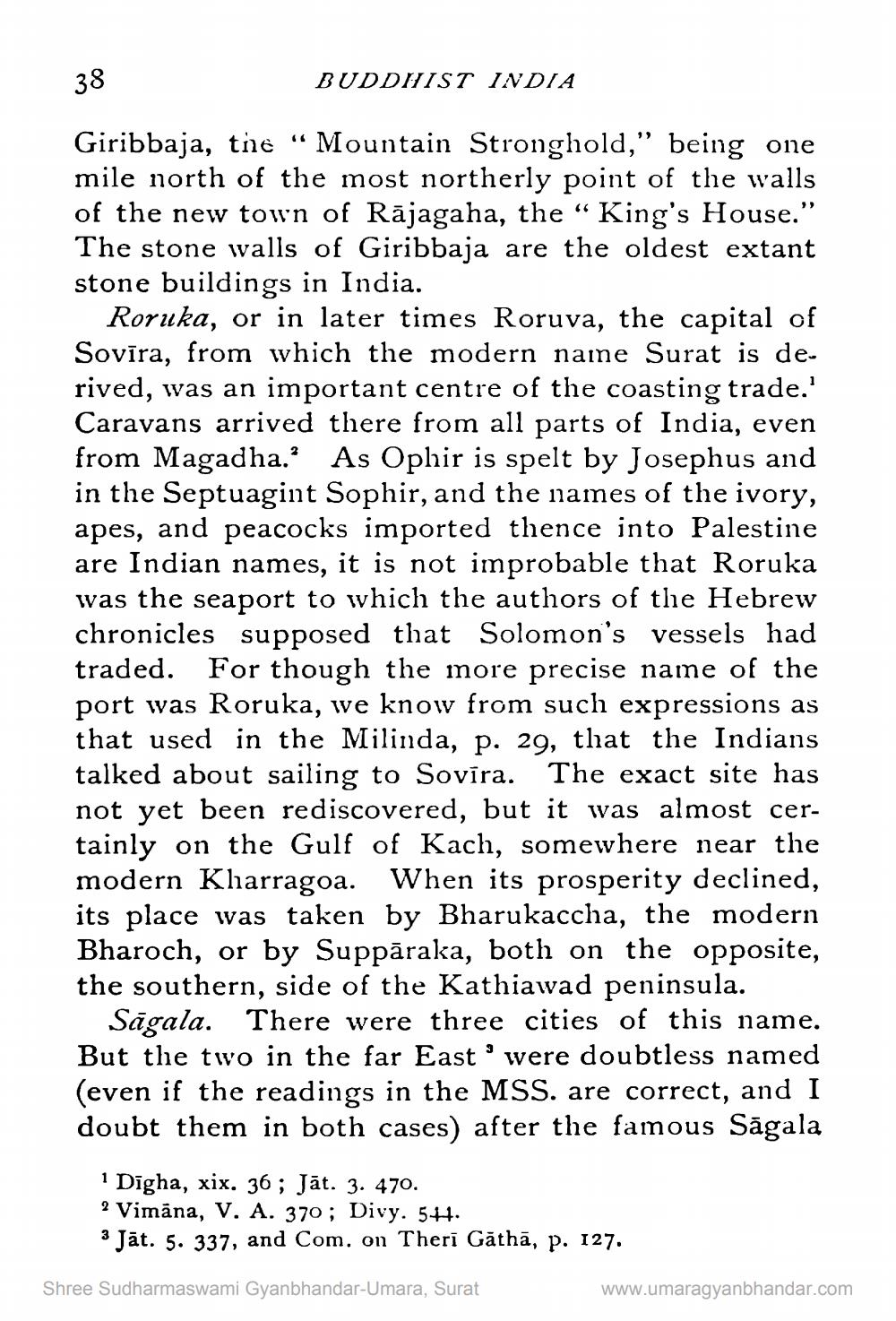________________
38
BUDDHIST INDIA
Giribbaja, tie " Mountain Stronghold," being one mile north of the most northerly point of the walls of the new town of Rājagaha, the “ King's House." The stone walls of Giribbaja are the oldest extant stone buildings in India.
Roruka, or in later times Roruva, the capital of Sovīra, from which the modern naine Surat is de. rived, was an important centre of the coasting trade.' Caravans arrived there from all parts of India, even from Magadha.” As Ophir is spelt by Josephus and in the Septuagint Sophir, and the names of the ivory, apes, and peacocks imported thence into Palestine are Indian names, it is not improbable that Roruka was the seaport to which the authors of the Hebrew chronicles supposed that Solomon's vessels had traded. For though the more precise name of the port was Roruka, we know from such expressions as that used in the Milinda, p. 29, that the Indians talked about sailing to Sovīra. The exact site has not yet been rediscovered, but it was almost certainly on the Gulf of Kach, somewhere near the modern Kharragoa. When its prosperity declined, its place was taken by Bharukaccha, the modern Bharoch, or by Suppāraka, both on the opposite, the southern, side of the Kathiawad peninsula.
Sāgala. There were three cities of this name. But the two in the far East 'were doubtless named (even if the readings in the MSS. are correct, and I doubt them in both cases) after the famous Sāgala
1 Dīgha, xix. 36 ; Jāt. 3. 470. ? Vimāna, V. A. 370 ; Divy. 54. 3 Jāt. 5. 337, and Com. on Theri Găthā, p. 127.
Shree Sudharmaswami Gyanbhandar-Umara, Surat
www.umaragyanbhandar.com




